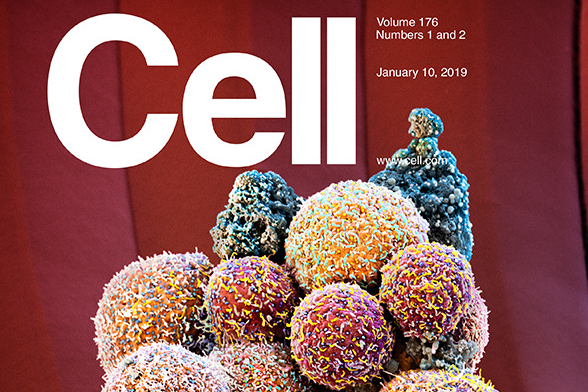/ Research, People
The Aceto Lab finds that clustering of circulating tumor cells results in DNA hypomethylation and metastasis formation. These effects can be reversed by an approved drug.

Artistic coloration of a CTC cluster, freshly isolated from the blood of a patient with breast cancer, trapped on a microfluidic device and imaged with electron microscopy. Cover image copyright Martin Oeggerli / Micronaut 2018, supported by Pathology-, C-CINA, Biozentrum, and I. Krol, and N. Aceto, Faculty of Medicine, University Hospital and University Basel.
The most dangerous aspect of breast cancer is the formation of metastases, which are seeded by circulating tumor cell clusters (CTC clusters). The team around Nicola Aceto has now discovered that the binding sites for stemness- and proliferation-associated transcription factors are specifically hypomethylated in CTC clusters, correlating with a poor prognosis in breast cancer. The team further identified an FDA-approved drug, which reverses DNA methylation, clustering of CTCs and also metastasis formation. The important findings of the interdisciplinary team of molecular biologists, computational biologists, and clinicians were published in Cell.
Social Media
